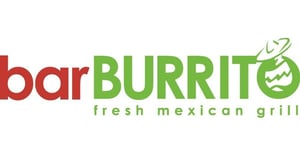
Franchise marketing FAQ: your complete guide (2026)
Every question you have about franchise marketing answered
That's why we've compiled clear answers to your most common franchise questions about strategy, operations, tools, franchise marketing, and franchise brand management.
Didn't find what you were looking for? We're here to help, just reach out!
General franchise marketing
First, let's answer some general questions about franchising.
A franchise is a business model where entrepreneurs run their own businesses while building on the strength of a trusted brand and proven systems. This approach is especially prominent across industries like retail and food service, where recognizable names thrive through local ownership.
In a franchise network, the franchisor sets the standards, owns the brand, and supplies the operational framework. Franchisees, in turn, bring those brands to life in their communities, managing day-to-day operations while upholding brand integrity.
Some of the world’s best-known brands operate with this model: McDonald's has more than 36,000 locations worldwide, Subway exceeds 44,000, and 7-Eleven reaches customers through over 66,000 stores spanning 20 countries.
Franchising is when a franchisor licenses its business name, trademark, and operating systems to franchisees. In return, franchisees pay an initial fee plus ongoing royalties.
Some of the benefits of franchising include:
- For growth: Franchising lets businesses expand rapidly into new markets without the capital costs of opening company-owned locations.
- For brand building: More locations mean more visibility and recognition in different markets.
- For profitability: The franchise model creates multiple revenue streams through fees, royalties, and supply agreements.
Some disadvantages of franchising include:
-
Loss of control: You give up some control over how your brand appears and operates at each location.
-
High costs: Starting requires significant investment. Expect initial fees plus ongoing royalty payments that can reach 6 to 8% of revenue.
-
Restrictive agreements: Franchise contracts limit what franchisees can change or adapt in their local markets.
- McDonald's (founded 1940): 36,000+ locations across 100+ countries. Known for burgers, fries, and consistency.
- Subway (founded 1965): 44,000+ locations globally. Famous for customizable submarine sandwiches.
- 7-Eleven (founded 1927): 66,000+ convenience stores in 20+ countries.
- Dunkin' Donuts (founded 1950): 11,000+ locations in 36 countries. Coffee and baked goods leader.
- Burger King (founded 1953): 15,000+ locations worldwide. Second second-largest burger chain.
- Wendy's (founded 1969): 6,500+ locations in 30+ countries.
- Taco Bell (founded 1962): 7,000+ locations serving Mexican-inspired food.
- KFC (founded 1952): 19,000+ locations in 120+ countries. Fried chicken specialist.
- Pizza Hut (founded 1958): 16,000+ locations across 90 countries.
- Domino's Pizza (founded 1960): 10,000+ locations in 70+ countries.
- Mobile pet grooming franchises: Niche service businesses that bring grooming directly to customers' homes. Success depends on strong local marketing.
- Home-based franchises: No storefront needed. Perfect for people wanting flexibility and lower overhead costs.
- Online franchises: Digital-first businesses that can operate globally from anywhere with internet access.
Quick answer: Launching a franchise system requires market research, legal documentation, a proven business model, and support systems for franchisees.
Seven steps to launch your franchise system
1. Prove your business model
Make sure your concept works profitably in multiple locations before franchising. Most franchise experts recommend operating successfully for at least two years.
2. Conduct market research
Research the market size, demographics, customer needs, and competition in your target expansion areas. This groundwork determines where your franchise concept will succeed.
3 Create legal documentation
Work with a franchise attorney to develop your Franchise Disclosure Document (FDD) and franchise agreements. These protect both you and your franchisees.
4 Develop a marketing plan
Your franchise recruitment plan needs specific goals, a defined target franchisee profile, a realistic budget, a timeline, and metrics to track success.
5: Create marketing materials
Build materials that attract qualified franchisee candidates. Show your track record, support systems, and return on investment potential.
6 Build franchisee support systems
Set up training programs, ongoing support, marketing resources, and operational guidance before you sell your first franchise.
7 Stay current with industry trends
Keep your system competitive by monitoring market changes, new marketing channels, and what successful franchises in other industries are doing.
Quick answer: Buying a franchise requires researching opportunities, evaluating your fit, securing financing, and completing the franchisor's approval process.
Seven steps to buy a franchise
1. Research franchise opportunities
Look at franchises in industries that interest you. Consider the investment required, the franchisor's track record, and growth potential.
2. Evaluate your local market
Research the market size, demographics, customer needs, and competition in your target territory. Make sure demand exists for this franchise concept.
3 Review the Franchise Disclosure Document
The FDD tells you everything about costs, obligations, restrictions, and the franchisor's financial health. Read it carefully and have a franchise attorney review it.
4 Talk to existing franchisees
Contact franchisees in the system. Ask about profitability, support quality, and whether they'd buy the franchise again, knowing what they know now.
5: Secure financing
Determine your total investment needs, including franchise fees, buildout costs, working capital, and initial marketing. Explore SBA loans and franchisor financing programs.
6 Complete the application process
Franchisors want to ensure you're a good fit. Be prepared for interviews, background checks, and financial reviews.
7 Attend training and launch
Complete the franchisor's training program, set up your location, and follow their launch marketing plan to open strong.
Franchise strategy
Your franchise strategy serves as the blueprint for expanding and shaping your franchise network. It brings your goals, current operations, and market position into clear focus, guiding every decision along the way.
Strategy development means planning how you'll grow through new locations, expanding existing ones, or both. The goal is efficient, effective growth using business planning tools, market research, and expert guidance.
Some of the benefits of a franchise strategy include:
- Faster growth: A clear strategy helps you spot and exploit expansion opportunities.
- Better efficiency: Streamlined operations reduce waste and improve franchisee profitability.
- Higher profits: Strategic planning maximizes return on investment across your system.
Some key components include:
-
Goal setting: Set realistic, measurable targets that guide your decisions.
-
SWOT analysis: Identify your strengths, weaknesses, opportunities, and threats.
-
Competitive analysis: Understand who you're competing against and what makes you different.
Franchise marketing
Franchise marketing attracts both end customers and potential franchisees to grow your system.
Two types of franchise marketing
- Operational franchise marketing: Collaborative, day-to-day marketing initiatives where franchisors and franchisees work together to attract and engage customers at every location.
- Franchise development marketing: Brand-driven campaigns designed to connect with and recruit new franchise partners in target territories.
Core franchise marketing principles
- Maintain a unified brand presence: Ensure your logo, color palette, and messaging are consistent across all locations, because consistency fosters customer confidence and loyalty.
- Engage local audiences: Tailor your campaigns to reflect the unique culture and preferences of each market. With Marvia, franchisors empower every location to deliver relevant, on-brand experiences.
- Be where your audience is: Connect with your community through a strong mix of online ads, print, social media, and in-person outreach.
- Inspire interest: Design marketing materials that spark curiosity and motivate potential franchisees to take the next step.
Understanding your market is the foundation for local franchise success. Keep these four essentials in mind:
- Market size: Evaluate the number of potential customers within your outlined territory.
- Demographics: Identify who those customers are by considering age, income, lifestyle, and preferences.
- Customer needs: Pinpoint the challenges your audience faces and the solutions they’re seeking.
- Competition: Review existing players in the area and clarify what sets your brand apart.
Armed with these insights, you can tailor your strategy to reach the right audience and give your local franchise the best start.
There is no one-size-fits-all answer to this question, as the best way to do marketing for a franchise business will vary depending on the franchise and the products or services it offers.
However, three fundamentals always apply:
- Identify your target market: Know exactly who you're trying to reach.
- Develop a consistent brand identity: Create recognition through repeated exposure to your brand elements.
- Choose the right channels: Go where your target customers actually spend time.
Insider insight: For many franchise brands, locally driven marketing is the most effective way to drive results and maximize ROI at each location.
Five ways to keep brands consistent
- Centralize your brand assets: Keep logos, color palettes, fonts, and brand guidelines organized in one easily accessible hub.
- Monitor brand compliance: Ensure every location adheres to your standards with clear oversight and tracking.
- Empower your network with ready-to-use templates: Provide pre-approved, customizable templates that help franchisees build on-brand materials with confidence.
- Coordinate marketing efforts: Manage campaigns across all locations with a unified marketing calendar.
- Grow your audience: Build and maintain a customer database that enables targeted outreach, always aligned with your brand identity.
A smarter solution: Marvia’s franchise marketing platform brings these essentials together. Our franchise marketing software equips your network with intuitive, on-brand templates, so local teams can craft compliant marketing materials in just minutes.
The most effective marketing channels for franchises depend on your specific business model and audience. However, these proven approaches drive engagement and brand consistency across locations:
- Social media marketing: Platforms like Facebook, Instagram, and TikTok offer broad reach and dynamic ways to share brand stories. Share timely updates, inspiring visuals, and helpful resources to connect locally and foster an active community with your franchisees.
- Email marketing: Tailor communications for both franchisees and customers. Deliver valuable updates, personalized offers, and actionable insights that keep your network connected and informed.
- Content marketing: Develop high-quality blog articles, videos, and infographics that empower franchisees to excel in their markets. Providing informative, on-brand content establishes your position as a trusted leader and resource in your industry.
When creating a marketing plan for a franchise business, it is essential to address five critical elements:
-
Goals: What specific outcomes do you want? (More franchisee inquiries? Higher customer traffic? Better brand awareness?)
-
Target market: Who exactly are you trying to reach?
-
Budget: How much can you invest in marketing?
-
Timeline: When will you execute each campaign element?
-
Success metrics: How will you measure if your plan worked?
Additional tips: Build strong franchisee relationships, provide ongoing training, and stay informed about industry trends.
Consider five factors when creating any marketing piece:
- Goals: What should this material accomplish?
- Target audience: Who will see it, and what do they care about?
- Message: What's the one thing you want people to remember?
- Design: Does it look professional and on-brand?
- Call to action: What should people do after seeing this?
There are many ways to promote your franchise business. Some common methods include advertising, public relations, direct marketing, and event marketing.
Additionally, you can promote your franchise business through social media, your website, and word-of-mouth.
Definition: PPC (pay-per-click) lets franchise businesses advertise on search engines like Google and Bing. You only pay when someone clicks your ad.
How PPC helps franchises
-
Increased visibility: Your ads appear when people search for what you offer.
-
Targeted advertising: Show ads to specific demographics, interests, and locations.
-
Flexible budget: Start small and scale up based on results.
-
Measurable results: Track exactly which ads generate leads and sales.
Bottom line: PPC works well for franchises because it captures people already searching for your products or services.
Understanding the impact of your franchise marketing is essential. With analytics platforms like Google Analytics, HubSpot, and Kissmetrics, you gain clear insight into your website traffic, lead generation, conversion rates, and more.
These tools collect data from your website, social media, and marketing campaigns, giving you the clarity to see which activities drive the strongest results and helping you shape more effective marketing strategies.
Franchise marketing budgets and costs
Quick answer: Most franchises spend 7 to 11% of revenue on marketing. Smaller franchises (under $5 million in sales) typically allocate 7 to 8%, while larger systems spend closer to 11%.
This total usually breaks down into two parts: the national marketing fund and local marketing spend.
National marketing fund contributions
Standard range: 2 to 4% of gross sales goes to the brand's national or regional marketing fund. This money funds campaigns that benefit all franchise locations like national advertising, brand development, digital marketing infrastructure, and creative assets.
Example: A franchise location doing $1 million in annual sales would contribute $20,000 to $40,000 per year to the national fund.
Local marketing requirements
Standard range: 3 to 5% of gross sales for local marketing activities. Franchisees use this budget for community marketing, local advertising, grand opening promotions, and regional campaigns.
Some franchise systems cap total marketing spend. Little Caesars, for instance, allows franchisees to spend up to 7% total on marketing at their discretion.
Why the range varies
Your actual marketing spend depends on several factors:
- Industry type: Business-to-consumer (B2C) franchises spend more than business-to-business (B2B) operations. Food service typically spends on the higher end.
- Market maturity: New territories need higher marketing investment to build awareness. Established markets maintain with lower spending.
- Competition level: Highly competitive markets require more aggressive marketing budgets.
- Growth stage: Newer franchise systems often invest more heavily to build brand recognition.
Bottom line: Plan for 8 to 10% of projected revenue when budgeting. Split this roughly 40% to the national fund and 60% to local marketing for most franchise types.
Simple answer: A complete franchise marketing budget covers six main categories: national fund contributions, local advertising, grand opening costs, digital marketing, promotional materials, and community involvement.
National brand fund (2 to 4% of sales)
Your required contribution funds system-wide initiatives:
- National television or streaming ads
- Brand development and creative work
- Corporate website and digital infrastructure
- Market research and consumer insights
- Public relations and media buying
Key point: You typically don't control how this money is spent. The franchisor manages the brand fund and determines allocation.
Local advertising (3 to 5% of sales)
Money you control for your territory:
- Local radio, print, or outdoor advertising
- Google Ads and Facebook advertising for your location
- Local event sponsorships
- Community partnerships and charity involvement
- Local influencer collaborations
Grand opening marketing (typically $20,000 to $75,000)
One-time investment when launching a new location:
- Grand opening event costs
- Introductory promotions and discounts
- Heightened advertising in the launch period
- Community outreach and PR
- Opening week staffing for promotions
Important: This is separate from your ongoing budget. Most franchise agreements require a minimum grand opening spend.
Digital marketing costs
Ongoing monthly expenses:
- PPC ads
- Social media ads
- Social media content creation
- Local SEO services
- Google My Bussiness optimization
- Email marketing tools and campaigns
- Online reputation management
- Website updates (if you have location-specific pages)
Typical range: $2,000 to $5,000 per month for most franchise locations, though competitive markets or aggressive growth strategies can easily push this to $8,000 to $10,000 monthly.
Marketing materials and collateral
Physical and digital assets:
- Window signage and in-store displays
- Menus, brochures, and flyers
- Business cards and stationery
- Promotional items (branded merchandise)
- Photography and video content
Budget tip: Many franchisors provide templates through brand management platforms like Marvia, which dramatically reduces these costs.
Regional advertising cooperatives (varies by system)
Some franchise systems organize regional co-ops where nearby locations pool additional funds:
- Shared television or radio campaigns
- Regional digital advertising
- Multi-location promotions
- Collective buying power for better rates
Structure: Usually 1 to 2% of sales in addition to other marketing expenses, but this varies widely by brand.
Quick answer: Recruiting new franchisees costs an average of $13,757 per franchise sold in 2025, according to the Annual Franchise Development Report by Franchise Update Media. This varies significantly by brand and territory.
Average cost per franchise sale
Industry benchmark: $10,500 to $13,757 per franchisee recruited, according to recent franchise development reports.
What this includes:
- Lead generation advertising
- Franchise broker commissions (if used)
- Discovery day events
- Sales team salaries
- Marketing materials for prospects
- CRM and lead management tools
What affects cost per sale
- Brand recognition: Well-known brands recruit franchisees more cheaply. Emerging brands need higher marketing investment per sale.
- Territory availability: Prime territories attract candidates more easily than secondary markets.
- Investment level: Higher investment franchises ($500,000+) cost more to recruit than lower investment opportunities.
- Lead quality vs quantity: Focusing on qualified leads reduces cost per sale compared to high-volume, low-quality approaches.
Quick answer: Beyond your marketing budget, franchisees pay ongoing fees to the franchisor. Total fees typically range from 8 to 12% of gross sales, including royalties and marketing contributions.
- Royalty fees (4-8% of sales): Your ongoing payment to the franchisor for using their brand and systems. This is separate from marketing fees but affects your total financial picture.
- Marketing fund contribution (2 to 4% of sales): Required contribution to the national or regional brand fund. This is the most common marketing-related fee.
- Local advertising requirement (varies): Some franchisors mandate minimum local spending rather than just suggesting it. Common structures include a minimum percentage of sales or a minimum dollar amount per month.
- Regional cooperative fees (optional or required): If your franchise has regional advertising cooperatives, you may pay an additional 1 to 2% to the co-op fund.
- Technology and software fees: Some franchisors charge separately for marketing technology, such as social media management tools or a franchise marketing platform.
Local franchise marketing
Definition: Local franchise marketing creates and delivers messages to customers in a specific geographic area.
Why local marketing matters for franchises
- Higher conversion rates: Local campaigns generate more leads and sales than generic national campaigns.
- Better brand awareness: Franchisees become known names in their communities.
- Stronger customer loyalty: Local relationships build repeat business.
Some franchise local marketing strategies include:
- Create locally relevant campaigns: Tap into customer insights to craft campaigns tailored to the unique preferences of your community, driving meaningful engagement and increased participation.
- Activate local media channels: Reach your audience where it matters most by partnering with trusted newspapers, radio, and TV outlets in your area, expanding your brand’s local presence.
- Foster community partnerships: Connect with neighborhood businesses to build referral programs and collaborative promotions that benefit both your franchise and the broader local market.
Franchise reputation management requires four ongoing efforts:
- Deliver quality: Consistently provide good products and services.
- Respond quickly: Address customer feedback and complaints promptly.
- Monitor online: Regularly check reviews and social media mentions.
- Promote positive reviews: Share customer testimonials and success stories.
Prevention strategy: Consistent, clear messaging is essential to safeguarding your brand’s reputation. With brand templates, teams can easily produce on-brand materials that respect both your guidelines and local compliance requirements.
National marketing builds brand awareness across all markets and is funded by the franchisor using contributions from all franchisees. Local marketing drives customers to individual franchise locations and is executed and funded by each franchisee.
- Budget allocation: Franchisees sometimes feel national marketing doesn't directly benefit their location, especially in underdeveloped markets.
- Creative control: Franchisees want to customize campaigns for their market, but corporate needs to protect brand consistency.
- Timing conflicts: National campaigns may not align with what individual locations need at a specific moment.
- Performance measurement: Hard to separate the impact of national brand building from local customer acquisition efforts.
Best practice: Successful franchise systems create clear guidelines that let franchisees adapt national campaigns for local use. With franchise marketing solutions like Marvia, local teams access a centralized hub that equips them with all the brand-approved resources and tools needed for effective, on-brand local marketing.
12 examples of brilliant local marketing
Want to see how other franchise brands nail the balance between consistency and local relevance? Check out our most popular guide featuring real campaigns that drove amazing local results.Franchise brand management
Quick answer: Franchise brand management creates a recognizable, unified brand identity across all locations.
Benefits of strong brand management
- Higher visibility: A consistent brand stands out from competitors.
- Better customer loyalty: Strong brands keep customers coming back.
- Greater trust: Consistent branding builds credibility with new customers.
- Increased franchise value: Well-managed brands attract better franchisee candidates and command higher valuations.
Brand marketing boosts visibility and shapes the way audiences connect with your franchise. By building trust and authenticity, it encourages lasting loyalty, fueling engagement, sales, and sustainable growth.
Traditional approach requires five steps:
- Create clear brand guidelines
- Train all franchisees on brand standards
- Audit franchisees regularly
- Hold franchisees accountable through contracts
- Provide support when franchisees struggle with compliance
Modern solution: Brand management software provides a central repository for brand assets, tracks compliance automatically, and gives franchisees tools to maintain standards easily, such as templates, pre-approved social posts, and campaign kits.
Franchise software
Quick answer: Franchises need software for operations, marketing, finance, HR, and franchisee management. The right tools help maintain consistency while giving individual locations flexibility.
Examples of franchise software
- Point of sale (POS) systems: Process transactions, track inventory, and generate sales reports. Most franchise POS systems sync data across all locations.
- Brand management software: store brand assets, ensure consistency, and give franchisees templates to create local marketing materials.
- Lead management: Track prospects from first contact through conversion, whether they're potential customers or franchisees.
- Learning management systems (LMS): Deliver training courses, track completion, and ensure all franchisees meet certification requirements.
- CRM (customer relationship management): Store customer data, purchase history, and support requests. Track relationships across all franchise locations.
The best tools help you reach larger audiences and give franchisees resources to sell more. Look for platforms that combine multiple channels so you work from one system instead of juggling many tools.
Essential franchise marketing software tools
- Social media management: Schedule posts, track engagement, and manage multiple accounts.
- Email marketing: Send mass emails, track performance, and segment your audience.
- Marketing automation: Automate repetitive tasks like email campaigns and social media posting.
- SEO (search engine optimization): Improve your search rankings to attract more visitors.
- Analytics: Track and analyze marketing campaign performance.
Key feature: The very best tools integrate all channels into one platform, making it easier to maintain consistency and track results.
- Integration capability: The tool should work with your other franchise software (POS, CRM, operations systems) to create a complete picture.
- Scalability: It needs to handle 50 locations as easily as 1,000 locations.
- Local customization: Franchisees need the ability to adapt campaigns for their market while staying within brand guidelines.
- Centralized control: Corporate needs visibility into what's happening at each location without micromanaging.
- Reporting across locations: See which marketing tactics work best and share those insights across your network.
Key insight: Franchises that use integrated platforms instead of juggling separate tools see better results because everyone works from the same playbook.
Yes. Software helps with three core areas:
- Marketing: Create and manage campaigns across your network.
- Operations: Manage inventory, scheduling, and customer data.
- Financial planning: Create budgets, track expenses, and generate reports.
Marvia's approach: Digital Asset Management puts all your assets in one place. Branded templates let franchisees create on-brand marketing materials in minutes.
Want to know more about our franchise marketing tools?
See how modern franchise brands use distributed marketing platforms to do localized marketing at scale while maintaining brand control.Trusted by franchises around the globe








Ready to transform your franchise marketing?
Don't let marketing bottlenecks limit your growth potential.
See how franchise leaders are empowering their locations to drive local sales while maintaining perfect brand consistency.
Trusted by leading franchises: Domino's Pizza, KFC, KidStrong, Boston Pizza, fit20, and BarBurrito use Marvia to manage their franchise marketing.